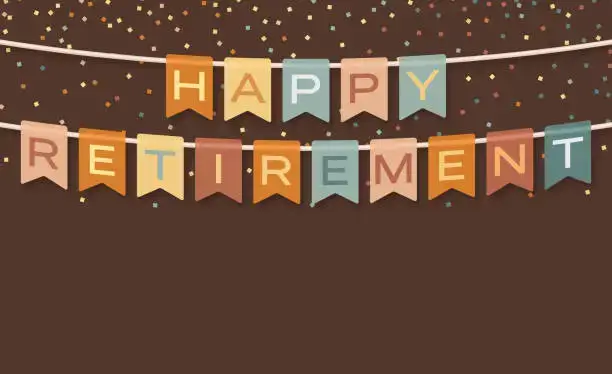
As a freelancer, you have the freedom to work on your own terms and pursue projects that align with your interests and skills. But like any other career, there comes a time when you need to start thinking about retirement. Knowing when to retire from freelancing is an important decision that can impact your financial stability, health, and overall well-being.
Retirement doesn’t necessarily mean giving up freelancing altogether. It could mean transitioning to part-time work or pursuing other interests and hobbies. However, making this decision requires careful consideration of various factors such as financial stability, health and wellness, and personal goals.
In this article, we’ll explore the signs that it’s time to retire from freelancing, the factors you should consider before making the decision, and tips on how to retire from freelancing successfully. So if you’re a freelancer who’s been contemplating retirement, keep reading to gain some valuable insights and make an informed decision about your future.
Signs that it’s time to retire from freelancing
As a freelancer, you have the freedom to work on your own terms and pursue your passions. However, there comes a time when you need to evaluate whether continuing to freelance is the best option for you.
1. Declining Health
One of the signs that it may be time to retire from freelancing is declining health. As a freelancer, you’re responsible for managing your own workload and schedule, which can be challenging if you’re dealing with health issues. Chronic stress, lack of sleep, and a sedentary lifestyle can take a toll on your physical and mental well-being. If you find that you’re struggling to keep up with your work or experiencing symptoms such as fatigue, pain, or anxiety, it may be time to re-evaluate your career path. It’s important to prioritize your health and seek medical attention if needed, rather than pushing yourself to the point of exhaustion.
2. Financial Instability
Another sign that it’s time to retire from freelancing is financial instability. Freelancing can be a feast-or-famine career, with income often fluctuating based on project availability and client demand. If you find yourself struggling to make ends meet or facing a significant reduction in income, it may be time to consider other career options or retirement. Without a steady income, you may struggle to maintain financial stability and meet your financial obligations. It’s important to have a realistic understanding of your earning potential as a freelancer and to plan accordingly for unforeseen financial challenges. Retirement planning can help you navigate financial instability and ensure a comfortable future.
3. Burnout and Lack of Motivation
Burnout is a state of physical, emotional, and mental exhaustion caused by prolonged and excessive stress, often resulting in a lack of motivation and decreased productivity. As a freelancer, burnout can be caused by working long hours, meeting tight deadlines, dealing with difficult clients, and managing multiple projects at once. When burnout becomes chronic, it can lead to a lack of motivation and a general disinterest in the work. This can be a sign that it’s time to retire from freelancing and focus on self-care and recharging. Taking a break or transitioning to a less demanding job can help prevent burnout and reignite the passion for work.
4. Lack of Passion
A lack of passion for the work is a common sign that it’s time to retire from freelancing. When you lose interest in the work you’re doing, it can be challenging to find the motivation and inspiration to continue doing it. As a freelancer, you may have started with a strong passion for your craft, but over time, the daily grind of managing clients, deadlines, and projects can erode that enthusiasm. It’s essential to pay attention to your feelings and be honest with yourself about whether you still enjoy what you’re doing. If you find that you’re no longer passionate about your work, it may be time to retire and explore new opportunities that align with your current interests and goals.
5. Difficulty keeping up with technology or industry changes
Well, let me tell you, keeping up with technology or industry changes can be a real struggle for some of us. As we get older, we may find it harder to adapt to new technologies or changes in our industry. This can make it difficult to compete with younger, more tech-savvy freelancers.
If you’re finding it hard to keep up with the latest software, social media platforms, or other technological advancements, it may be a sign that it’s time to retire from freelancing. You don’t want to be left behind in your industry, and it’s important to know when it’s time to step aside and let the younger generation take over. So, take a moment to evaluate your skills and abilities, and consider whether it’s time to start planning for retirement
Steps to Take When Considering Retirement from Freelancing
Deciding to retire can be a daunting task, and it’s important to have a plan in place. Whether you’re ready to retire or just starting to think about it, there are several things you can do to ensure a smooth transition.
In this section, we’ll discuss some of the steps you should take when considering retirement from freelancing.
1. Financial Stability
Financial stability is a critical factor to consider before retiring from freelancing. As a freelancer, your income can be unpredictable, so it’s essential to have a clear understanding of your financial situation. Before retiring, you need to assess your current financial position and ensure that you have enough savings to support yourself throughout your retirement years.
Retirement can last decades, and during that time, you’ll need to pay for food, housing, healthcare, and other essential expenses. You don’t want to find yourself in a situation where you have to cut back on your lifestyle or go back to work because you didn’t save enough.
To achieve financial stability, you need to create a retirement plan that takes into account your current and future expenses. You also need to make sure that you have a reliable source of income during your retirement years, whether it’s from Social Security, pension, investments, or other sources.
Innovative Tech Solutions, Tailored for You
Our leading tech firm crafts custom software, web & mobile apps, designed with your unique needs in mind. Elevate your business with cutting-edge solutions no one else can offer.
Start NowRemember, financial stability is not just about having enough money; it’s about having a plan and a strategy that will ensure that you can enjoy a comfortable retirement without worrying about running out of money.
2. Health Insurance
Health insurance is a critical factor to consider before retiring from freelancing. As a freelancer, you’re responsible for obtaining and paying for your own health insurance, which can be expensive. When you retire, you’ll need to ensure that you have adequate health insurance coverage to cover your medical expenses.
Medical costs can be a significant financial burden, especially during retirement when your income may be limited. It’s important to research your options and determine which health insurance plan is best for you. Some retirees may be eligible for Medicare, while others may need to purchase private health insurance.
Before retiring, it’s important to review your current health insurance policy and determine whether you need to make any changes. If you have any pre-existing conditions, it’s essential to make sure that they’re covered under your new health insurance policy.
Remember, health insurance is not just about protecting yourself from unexpected medical expenses; it’s also about ensuring that you have access to quality healthcare when you need it. By considering your health insurance options before retiring, you can help protect your financial and physical well-being during your retirement years.
3. Retirement Savings
Retirement savings are a critical factor to consider before retiring from freelancing. As a freelancer, you don’t have access to employer-sponsored retirement plans, such as 401(k)s or pensions. Therefore, you need to take responsibility for your retirement savings and create a plan to ensure that you have enough money to support yourself during your retirement years.
Retirement savings can come in many forms, including individual retirement accounts (IRAs), brokerage accounts, and real estate investments. By investing in these types of accounts, you can build a portfolio of assets that will generate income during your retirement years.
It’s important to start saving for retirement as early as possible to take advantage of compound interest and ensure that you have enough time to build a substantial nest egg. However, even if you’re close to retirement, it’s never too late to start saving.
By considering retirement savings as a critical factor before retiring from freelancing, you can help ensure that you have enough money to support yourself during your retirement years and achieve the financial security that you deserve.
4. Personal Goals
Personal goals are an essential factor to consider before retiring from freelancing. Retirement can be a significant life change, and it’s essential to have a plan for how you want to spend your time during this new chapter of your life.
Before retiring, it’s important to consider your personal goals and aspirations. Do you want to travel, spend time with family, or pursue a hobby or passion project? Retirement provides an opportunity to focus on the things that matter most to you, and by setting personal goals, you can create a roadmap for achieving them.
By considering your personal goals before retiring, you can also help ensure that you have the financial resources to achieve them. For example, if you want to travel extensively during retirement, you’ll need to budget for travel expenses and plan accordingly.
Retirement is an opportunity to create a fulfilling and rewarding lifestyle, and by considering your personal goals, you can create a retirement plan that reflects your values and priorities. Whether you want to learn a new skill, volunteer, or spend time with loved ones, retirement can be a time of growth and exploration.
Tips to help you retire from freelancing
Retiring from freelancing can be a daunting task, but with proper planning and execution, it can be a smooth transition. Here are some tips to help you retire from freelancing:
1. Create a transition plan: Creating a transition plan is crucial when retiring from freelancing. This plan should include details on how you will transfer your clients, projects, and responsibilities to someone else. Consider setting a timeline for the transition to ensure a seamless handover.
2. Notify clients and colleagues: It’s essential to inform your clients and colleagues that you’re retiring from freelancing. Be sure to give them ample notice so they have time to find someone else to work with. This will help maintain positive relationships and a good reputation.
3. Network and find new opportunities: Retiring from freelancing doesn’t mean you can’t continue working. Consider networking and finding new opportunities in your field. Attend industry events, connect with people on social media, and let people know that you’re available for work.
4. Pursue personal interests and hobbies: Retirement is a great time to pursue personal interests and hobbies that you may not have had time for in the past. This can help you maintain a healthy work-life balance and enjoy your retirement to the fullest.
5. Consider part-time work or consulting: If you’re not ready to retire completely, consider part-time work or consulting. This can provide you with extra income and allow you to continue working in your field on a flexible schedule that works for you.
In conclusion, retiring from freelancing requires careful planning and execution. Creating a transition plan, notifying clients and colleagues, networking, pursuing personal interests, and considering part-time work or consulting are all great ways to make the transition smoother. Remember to take your time and enjoy the process of transitioning into retirement.
Final words
In summary, retiring from freelancing is a big decision that requires careful consideration. Knowing when to retire can be challenging, but it’s important to listen to your body, mind, and financial situation. It’s crucial to have a plan in place and to communicate with clients and colleagues to ensure a smooth transition. Pursuing personal interests and hobbies and considering part-time work or consulting can help make the transition into retirement easier. Ultimately, retirement should be an enjoyable and fulfilling time of life, so take the time to plan and make the most of it.
Before you go…
Hey, thank you for reading this blog to the end. I hope it was helpful. Let me tell you a little bit about Nicholas Idoko Technologies. We help businesses and companies build an online presence by developing web, mobile, desktop, and blockchain applications.
We also help aspiring software developers and programmers learn the skills they need to have a successful career. Take your first step to becoming a programming boss by joining our Learn To Code academy today!
Be sure to contact us if you need more information or have any questions! We are readily available.
Seamless API Connectivity for Next-Level Integration
Unlock limitless possibilities by connecting your systems with a custom API built to perform flawlessly. Stand apart with our solutions that others simply can’t offer.
Get Started










